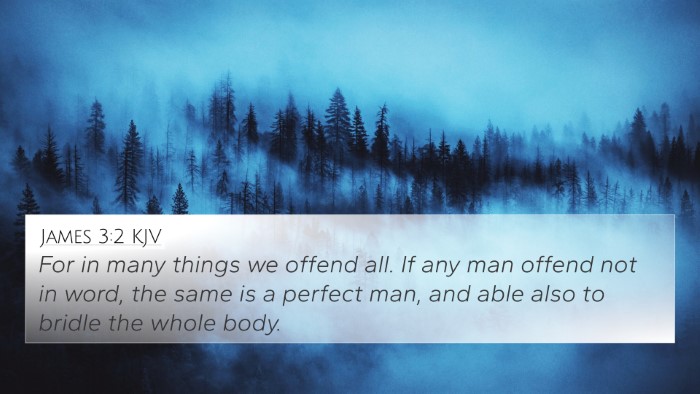Understanding Job 15:13
Job 15:13 states: "That thou turnest thy spirit against God, and lettest such words go out of thy mouth."
This verse is part of a dialogue in which Eliphaz the Temanite speaks to Job, suggesting that Job’s afflictions are a result of his own actions and attitudes towards God. Eliphaz implies that Job is challenging God's authority and righteousness, which reflects a common theme of retribution theology prevalent among Job's friends.
Summary of Key Insights
- Eliphaz's Accusation: Eliphaz believes that Job is unjustly turning against God, suggesting that Job's suffering is due to his own moral failings.
- The Nature of Words: The emphasis on the "words" that come from Job highlights the importance of speech and the power of declaring one's thoughts about God.
- Understanding God’s Nature: Eliphaz represents the view that God is always just and that human suffering must therefore be due to sin.
Comparative Bible Verse Analysis
This verse can be cross-referenced with multiple Biblical texts that explore the themes of suffering, God's justice, and human response to adversity.
- Psalm 73:13-14: Reflects on the hardship faced by the righteous.
- Proverbs 3:11-12: Discusses the idea of divine discipline.
- Isaiah 29:16: Deals with the foolishness of questioning God’s sovereignty.
- Romans 8:28: Assures that God works all things for good for those who love Him.
- James 1:19-20: Advises on the importance of controlled speech.
- Hebrews 12:5-6: Quotes from Proverbs about divine correction.
- 1 Peter 4:12-13: Encourages believers to consider their suffering joyfully if for Christ’s sake.
Thematic Connections
The themes presented in Job 15:13 resonate with broader scriptural discussions about the nature of suffering and God's justice.
- Linking Bible Scriptures: Job's friends often represent the belief in a straightforward cause and effect between sin and suffering.
- Covenantal Themes: The suffering servant’s theme in Isaiah parallels with Job's experiences.
- The Reality of Human Suffering: Ecclesiastes 7:20 acknowledges that there is not a righteous man on earth who does good and never sins.
Tools for Bible Cross-Referencing
Using a bible concordance and bible cross-reference guide can help deepen understanding, revealing how various verses connect across the scriptures.
Inter-Biblical Dialogue
The dialogue between Job and his friends opens discussions around human suffering and divine justice relevant in both the Old and New Testament. How do these themes manifest in the teachings of Jesus?
Conclusion
Job 15:13 serves as a poignant reminder of the discourse surrounding faith, suffering, and our responses to God's governance in our lives. Understanding this verse in conjunction with the references mentioned sheds light on its deeper meanings and the overarching narrative of the scriptures.











